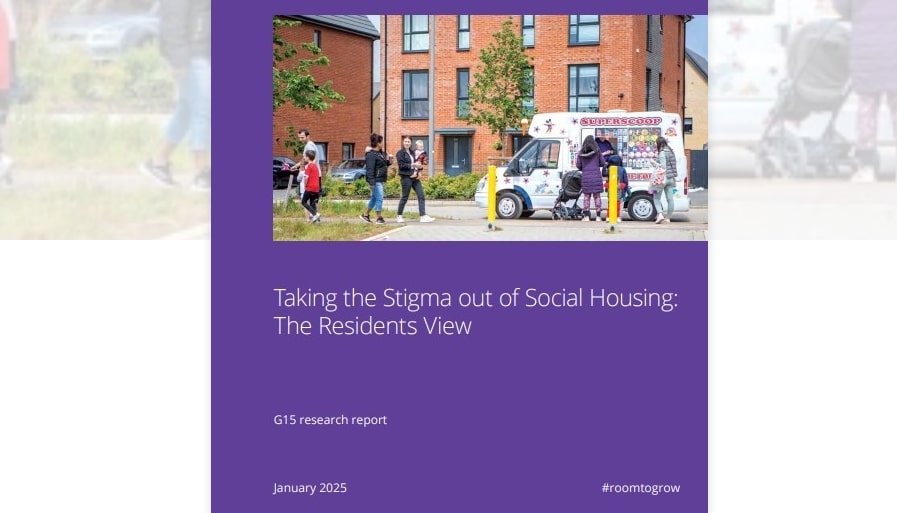Almost half of social housing residents in London have reported experiencing prejudice or discrimination due to their housing status, according to a new survey. The findings, part of the “Taking the Stigma out of Social Housing: The Residents View” report, reveal the extent of stigma faced by social housing residents in the capital and how it affects their personal and professional lives.
The survey, conducted by the G15, which represents London’s largest not-for-profit housing associations, collected responses from 3,000 social housing residents. The results show that 45% of respondents had faced prejudice because of their housing, and 35% expressed feelings of embarrassment related to their living situation. The report highlights that social housing, a critical part of London’s infrastructure, continues to be associated with negative stereotypes and social stigma.
Daisy Armstrong, Chair of the G15 Residents’ Group, noted, “Social housing is a lifeline for so many people, but stigma continues to hold us back. It’s time we focused on the reality: we are proud of our homes, proud of our communities, and proud of the contributions we make to society.”
The survey revealed that social housing residents face stigma in various aspects of their lives. The most common source of discrimination came from interactions with landlords, with 43% of respondents citing negative experiences. Other areas included customer service interactions, such as with banks and mobile phone companies (24%), and encounters with authorities like the police (24%). Notably, 18% of residents reported that their housing status had impacted their employment opportunities, while 14% felt it affected their dating lives.
A significant driver of stigma, the report suggests, is media portrayals of social housing and its residents. Many respondents pointed to sensationalist shows like Benefits Street, which have contributed to negative stereotypes, portraying residents as criminals or welfare-dependent. “The media has a huge role in shaping people’s views,” one resident said. “Programmes like ‘Benefits Street’ made us feel judged and embarrassed. It’s not the reality of who we are.”
Additionally, the language used by politicians and government policies surrounding social housing were also seen as contributing to the negative perceptions. Despite the national conversation sparked by the Grenfell Tower tragedy in 2017, meaningful changes in attitudes and policies have been slow.
Fiona Fletcher-Smith, CEO of L&Q Housing and Chair of the G15, stressed the need for a shift in how social housing residents are treated. “This report should be a wake-up call to society and policymakers. Social housing residents are the beating heart of London—not only as essential workers but as neighbours, carers, young professionals, families, and active members of their communities.”
While the stigma remains pervasive, the report also highlights the benefits that social housing brings to residents. A majority (67%) of respondents cited financial savings from lower rent as a key advantage, with many able to allocate resources to other areas of their lives. Additionally, 45% reported improvements in family life and 42% noted better mental and physical health.
The report also highlighted the significant role social housing residents play in London’s workforce, with many employed in essential services such as healthcare, security, and public transport. Social housing residents contribute an estimated £6.9 billion to the capital’s economy each year.
In conclusion, the report calls for an urgent shift in public perceptions and policies, urging policymakers to challenge damaging stereotypes and provide more support to residents, who are a vital part of the community.

